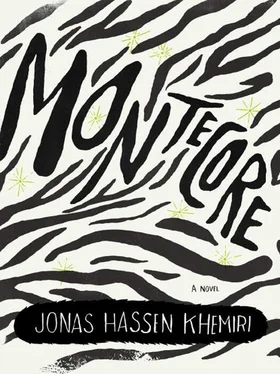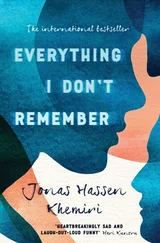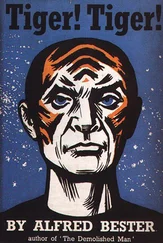Khemirish is Dads’ language and the family’s language; it’s a language that is only yours, that no one else owns, and that you will never show anyone (until now?).
10. Your father actually repeated “my happiness is indescribable” triangularly in the same letter. Do you realize, then, what an indescribable happiness your birth gave him? He lived in a divine bubble the evening he returned from the hospital after your birth. He has described how, the entire first night, he parked his body at your kitchen window, stared at the desolation of the yard, toasted himself to tears, and chorused along with Stevie Wonder’s “Isn’t She Lovely?” (He just replaced “she” with “he.”) That for you he focused more on the disappointment you brought him is something that he presumably regrets. Here follows yet another pause in my correspondence with your father. During this time Tabarka’s tourist industry grows. I polish my career from kitchen-responsible to pool-responsible to planner of dance competitions. In parallel Swedish time, your father maximizes his attempts to sparkle his photographic career. While your mother recovers her strength after your delivery, your father passes his time at the restaurant on Rådmansgatan. He cleans the greenness of the carpets of gum, he glitters the toilet’s shine forth from vomit, he searches under the coatroom’s counter in pursuit of forgotten one-crown coins. In the afternoons he assists Raino’s developed entrecôtes and adjusts the light and contrast of fish soups and desserts. On the weekends he combs his curly coiffure, puts on his beret, and wanders his steps from gallery to gallery both in Gamla Stan and on Hornsgatan. His two prepared photographic collections lie ready in his portfolio. His fingers sink door handles, bells jingle; black-polo-shirted gallery owners with big plastic lunettes receive him, smiling nervously, browse his portfolio, hmm their approval, and accept his homemade business card. They praise his talent. They promise potential cooperation. But …just before he goes, they ask, of course, the oh-so-vital-for-Swedes question of national background. And your father’s tongue auctions with more and more tired voice that his roots are unimportant for his photographic ambition. The gallery owners excuse themselves and promise their effective telephone calling. Relieved, your father goes home to his wife and auctions: Soon my career will find its gallop!
Is it not bizarre that your father, who would later expose suspicion toward everything and everyone, actually seems to believe the gallery owners’ words? Perhaps the desire to believe was so well formed that no alternatives were provided to him? Because do you know how many gallery owners picked up the phone and called your father?
Not a single one.
The years pass.
In 1982 your father transforms himself from dishwasher to metro driver for Stockholm Public Transit, SL. He receives his position after having passed a Swedish test by actively reflecting his glance toward his neighbor’s paper …
Here I suggest that you inject your three earliest memories of your father. Do you feel ready? Good luck!
Dearest greetings!
Thank the correspondence of your three earliest memories. Hmm … I presume that we will class this text as preliminary and in need of a great deal of polishing? Why have you decided to describe yourself as “you” instead of “I”? Why do you write “Dads” instead of “Dad”? Is this carelessness, or intention? The quality of the text can be substantially stimulated, with my opinion, with a more classic form, à la “Oh, my father, let me now form my first memories of my great hero …”
Did this take you three weeks to formulate? Now I am starting to realize what you mean about being “sooooo not pumped” to write your secondary book. It must be so much easier to accuse one’s dear author colleague of insufficient honesty and competence … Is it not tempting to mask one’s own inability by aggressively attacking others’? Because is that not what you are doing? In the next message you are welcome to disambiguate your ambiguity. First you hail your father’s poetic letters. You write that my translation is reminiscent of the professionalism of BabelFish and you write that their injection into the book would be like “gilding the lily.” What is more beautiful than a gilded lily? Then your tone suddenly becomes harsh and sharp. You write that now it is your turn to participate more in the book and you suddenly accuse your father’s letterish writing style of being “suspiciously like” mine? Let me response like this:
1. Your father wrote me in Arabic. I have translated the letters to Swedish. That my linguistic tone could not be modified from its foundations in order to PRECISELY capture your father’s phrases is a surprise that we should call entirely expected. I write with those knowledges of the Swedish language which I have at my disposal. My effective time in Sweden was limited and I am aware that I cause certain grammatical glides. It would not raise my eyebrows if you were to find three defects in each document! But it would detach my eyebrows if these defects were to grow your doubt about my honest ambition.
2. But … With the ideal of honesty I must simultaneously admit that you are correct when you write that your father’s letters are not ENTIRELY objective from my influence. Certainly I have SOMETIMES let a little Kadir be injected. For example, I embroidered the text with certain life-giving metaphors (see: your mother’s crying hand likened “as a car’s windshield wipers”). I also amplified the visuality (see: your mother’s shined smile at Central Station). But I have not modified ANYTHING that your father would oppose, I know this with voluminous certainty. That is how well I know his soul. He often talked about how your mother’s smiling lines could placate everyone from social-service ladies to metro inspectors to police to camera sellers. And incidentally this is what he wrote in an e-mail in 2002, just home from a photo session with the Dalai Lama: “But his [the Dalai Lama’s] smiling power could still not measure up to Pernilla’s. Certain smiles shine like suns; others like stars. But only one smile presents its rays with radioactive volume.” If I have amplified your father’s letters in order to truly reflect his opinion, then a streak of fantasy cannot really be called dishonesty. Right?
3. Of course it is now your turn to take over the baton of the narrative. Prior to the triangular section of the book it is delegated wholeheartedly to you, which is perfect because the relationship between your father and me is frozen to stillness during the coming years, a little like a paused DVD.
• • •
Feel free to correspond me your developing text, and I will promise you prominent, not to say exalted, commentary. As inspiration for your continued work I affix to you a text that forms your father’s dramatic return to Tunisia in 1984.
Your charming friend,
Kadir
After a lengthy illness, old Faizal farewelled this earth in the spring of 1984. Abbas returned to Jendouba to participate in the funeral. I myself could not take time off from the Hôtel Majestique because of the tragic poker misfortunes of my latest period. The cards had tortured more than stimulated me, and I was forced to work very harshly in order to be able to pay back my latest losses. Patiently I awaited your father in Tabarka, in the hope that he would convey my loaned economy.
One cold February twilight, a taxi retired outside the entrance to Hôtel Majestique, and out journeyed your father’s silhouette, clad in dark brown Ray-Bans, grown-out hair, and a light blue T-shirt from the magazine Current Photography on which the letters spelled forth: “Photographers make it a memory for life.”
Читать дальше










